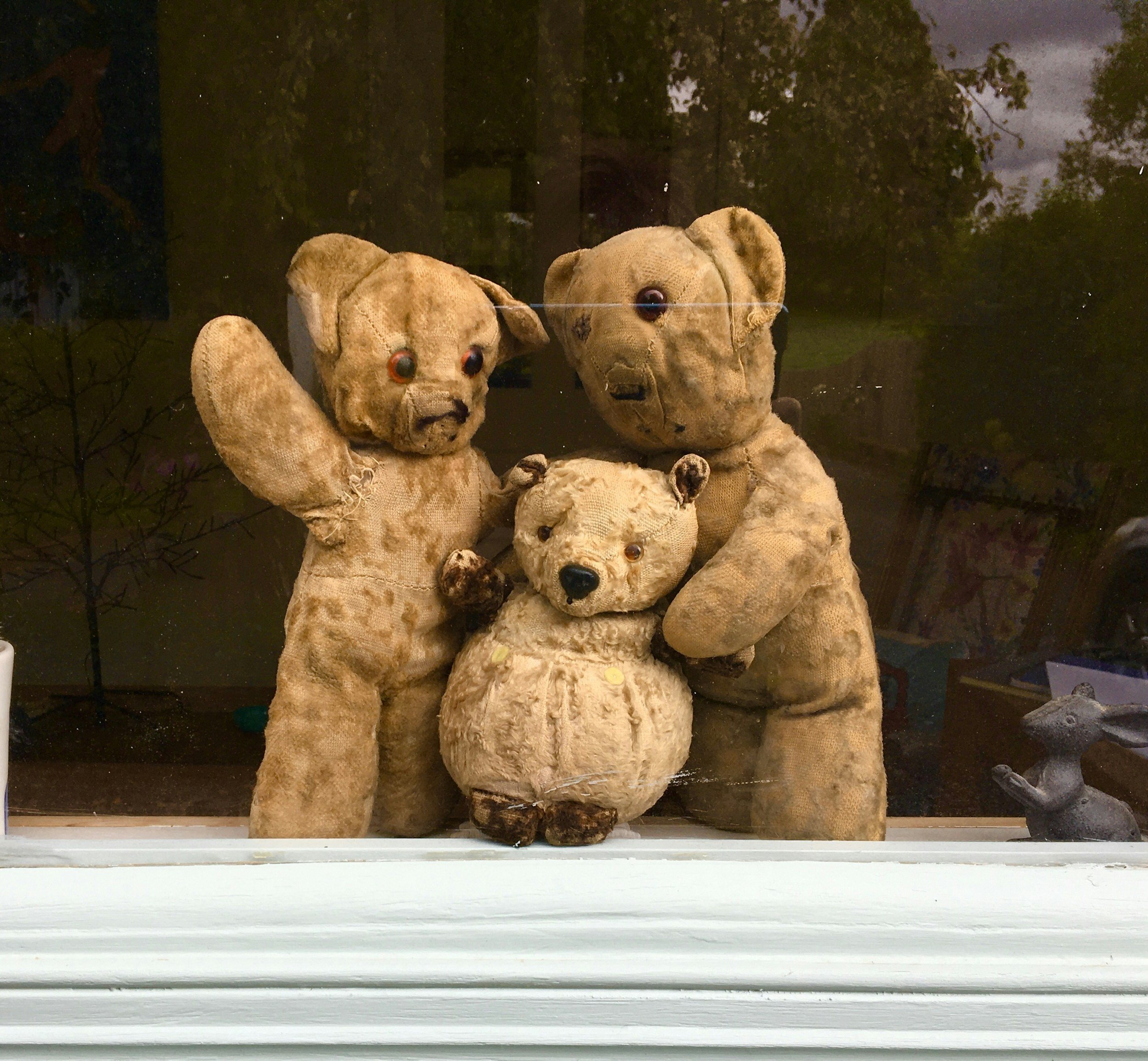The Belcher Kids: A Psychological Whopper
Exploring the Complex Psychological Profiles of Tina, Louise, and Gene from "Bob's Burgers"
Bob's Burgers has earned a special place in the hearts of audiences with its humor, endearing characters, and heartwarming family dynamics. The show stands out for its portrayal of the Belcher children—Tina, Louise, and Gene—whose distinct personalities offer a deep and nuanced exploration of childhood and adolescence. Each character defies traditional stereotypes, presenting a rich psychological profile that reflects the complexities of growing up. This article takes a closer look at their psychological traits, examining how these characters challenge societal expectations and offer insights into the experiences of girlhood and boyhood.
Tina Belcher: The Introverted Dreamer
Personality Traits
Tina Belcher, the eldest of the Belcher siblings, is often portrayed as shy, introverted, and reflective. She is deeply introspective, frequently lost in her thoughts, which gives the audience a glimpse into her rich inner world. Tina’s creativity is a central aspect of her character. Her love for writing erotic fan fiction and her imaginative daydreams about romance and zombies reveal a vibrant fantasy life, which serves as an outlet for her emotions and burgeoning sexuality. Though socially awkward and sometimes gullible, Tina’s loyalty and empathy make her a beloved character who connects deeply with others, even in her most vulnerable moments.
Experiences of Girlhood
Tina’s journey through girlhood challenges the idea of a "one-size-fits-all" experience. As noted by Barnett (2019), Tina represents a version of girlhood that is both sexual and innocent. She is learning to navigate her desires while maintaining a sense of purity and naivety. This blend of qualities showcases the complexity and fluidity of girlhood, rejecting rigid stereotypes. Tina’s experiences also reflect the challenges faced by young girls, including societal expectations and pressures shaped by her family’s socioeconomic status. Her character embodies vulnerability and resilience, navigating the complicated terrain of adolescence.
Strengths and Challenges
Strengths: Tina’s self-awareness stands out as one of her greatest qualities. Despite her social awkwardness, she remains unapologetically herself. Her empathy and caring nature make her an emotionally intelligent and supportive figure, qualities that help her build meaningful relationships.
Challenges: Tina exhibits signs of social anxiety disorder, which is apparent in her nervousness in social settings and fear of embarrassment. Her over-analysis of interactions, particularly with her crushes, can also be seen as part of this struggle. Additionally, Tina’s obsessive interest in fan fiction and her repetitive daydreams suggest mild obsessive-compulsive tendencies, indicating a desire for control over her internal world in a way that provides comfort and structure.
For a deeper look at Tina’s coming-of-age arc and her cultural resonance can be found here.
Louise Belcher: The Bold Maverick
Personality Traits
Louise Belcher, the youngest sibling, is fearless, quick-witted, and unafraid to speak her mind. Her boldness, combined with her intelligence and resourcefulness, allows her to take on leadership roles within her family, despite her young age. Louise’s strong sense of independence and her mischievous, sometimes rebellious nature, make her a standout character. Beneath her tough exterior, however, is a deep love for her family, particularly her siblings. She often adopts a protective role, fiercely guarding Tina and Gene, which highlights her emotional depth and loyalty.
Experiences of Girlhood
Louise's portrayal of girlhood is complex and defies conventional gender expectations. Barnett (2019) observes that Louise’s strength and assertiveness challenge the typical portrayal of girls in media. She is often seen as the opposite of the traditionally "feminine" character, yet her vulnerability and moments of emotional depth highlight the fluidity of girlhood. Louise’s rebellious streak can be interpreted as a response to societal pressures, such as the constraints of patriarchy, and it showcases how girls often navigate these challenges in creative and non-conforming ways.
Strengths and Challenges
Strengths: Louise’s intelligence and sharp wit are her greatest strengths. Her ability to think quickly and adapt to challenging situations often helps her and her family escape trouble. Her resilience and determination allow her to bounce back from setbacks, making her a strong figure who can stand up to adversity.
Challenges: Louise's behavior suggests symptoms of oppositional defiant disorder (ODD), characterized by frequent defiance, irritability, and a tendency to argue with authority figures. While this trait is exaggerated for comedic effect, it reflects deeper struggles that some young people experience in defying societal norms. Additionally, Louise’s tendency to engage in deceitful and manipulative behavior suggests traits commonly associated with conduct disorder. These traits, however, are often played for humor and are less about a clinical diagnosis than about a broader portrayal of her complex personality.
Gene Belcher: The Outgoing Performer
Personality Traits
Gene Belcher, the middle child, is characterized by his exuberant personality and passion for performance. As the most extroverted of the siblings, Gene brings a sense of fun and spontaneity to every situation. His love for music and his knack for creating original songs and sound effects define much of his character. Gene’s humor and positive energy are infectious, making him a source of joy for both his family and the audience.
Experiences of Boyhood
Gene’s experiences of boyhood are marked by his carefree attitude and creative spirit. His relationships with his sisters, Tina and Louise, reveal a supportive and collaborative dynamic. Gene often acts as a bridge between Tina’s introverted nature and Louise’s boldness, helping to create balance in their interactions. While Gene embodies a typical "boy" character in some respects, his free-spirited and creative personality challenges stereotypical notions of boyhood, allowing him to express his emotions and interests without restriction.
Strengths and Challenges
Strengths: Gene’s optimism and enthusiasm are among his greatest strengths. His positive outlook helps him navigate challenges and setbacks with resilience. Gene’s creativity, particularly in music, gives him a unique way of expressing himself and contributes to his sense of self-worth.
Challenges: Gene exhibits characteristics of attention-deficit/hyperactivity disorder (ADHD), such as difficulty staying focused, impulsivity, and a constant need for stimulation. These traits often lead to impulsive decisions that can have unintended consequences. Additionally, Gene shows signs of hypomania, a mood state that involves high energy, rapid speech, and sometimes grandiose ideas. These traits are sometimes reflected in his over-the-top performances and his tendency to get caught up in big, imaginative plans.
For a deeper look at Gene’s character, especially through the lens of the Freudian Oedipus Complex—check out this article.
Impact on Viewers
The rich and complex portrayals of Tina, Louise, and Gene resonate deeply with viewers at home, offering not only entertainment but also a mirror reflecting the complexities of their own lives. Each character, with their unique traits and experiences, brings something distinctive to the audience, fostering a connection that transcends the screen.
Tina Belcher stands as a beacon of relatability for many adolescents and introverts. Her shy, reflective nature and her struggles with social anxiety strike a chord with viewers who see their own insecurities and hopes mirrored in her character. Tina's journey through adolescence, marked by her vivid imagination and obsessive-compulsive traits, reassures viewers that it's okay to be different and that one's quirks and vulnerabilities can be sources of strength and creativity.
Louise Belcher, with her boldness and cunning, empowers viewers who may feel constrained by societal norms. Her defiance against traditional gender roles and her rebellious spirit inspire those who wish to break free from expectations and assert their own identities. Louise's oppositional and conduct disorder traits, while exaggerated for comedic effect, highlight the struggles of those dealing with similar challenges, offering a sense of understanding and empathy.
Gene Belcher brings joy and laughter, appealing to the playful and creative sides of viewers. His exuberant personality and ADHD traits resonate with those who experience similar energy levels and impulsiveness, showing that these characteristics can be sources of positivity and creativity. Gene's optimism and love for music remind viewers of the importance of embracing one's passions and maintaining a positive outlook, even in the face of difficulties.
Together, the Belcher children embody a spectrum of experiences and traits that validate and celebrate the diversity of human behavior. Their stories encourage viewers to embrace their own complexities, fostering a sense of empathy and acceptance for themselves and others. By presenting characters who are both deeply flawed and immensely lovable, "Bob's Burgers" offers a comforting and engaging narrative that resonates with audiences of all ages.
Simply Put
The Belcher children—Tina, Louise, and Gene—are beautifully crafted characters that reflect the diversity of experiences children face as they navigate adolescence. Each character brings something unique to the table: Tina’s introspection and empathy, Louise’s boldness and wit, and Gene’s creativity and optimism. Their psychological profiles provide valuable insight into how children cope with and express their emotional lives, helping viewers see aspects of themselves in these beloved characters.
These characters offer more than just comedic moments; they serve as a reflection of the complexities of growing up. Tina’s struggle with social anxiety and obsession, Louise’s defiance of societal norms, and Gene’s high-energy, creative spirit resonate with viewers, promoting empathy for those who share similar traits. Through their diverse personalities and challenges, Bob's Burgers demonstrates the fluidity and richness of childhood experiences, encouraging viewers to embrace their own complexities and appreciate the differences in others.

















